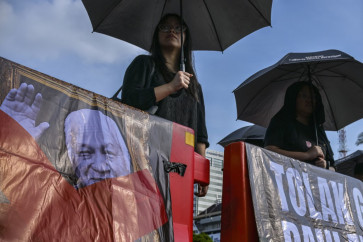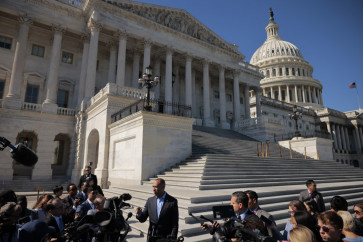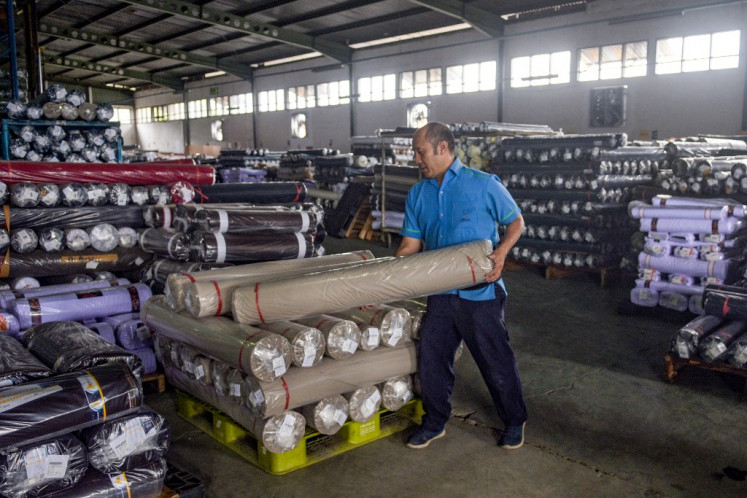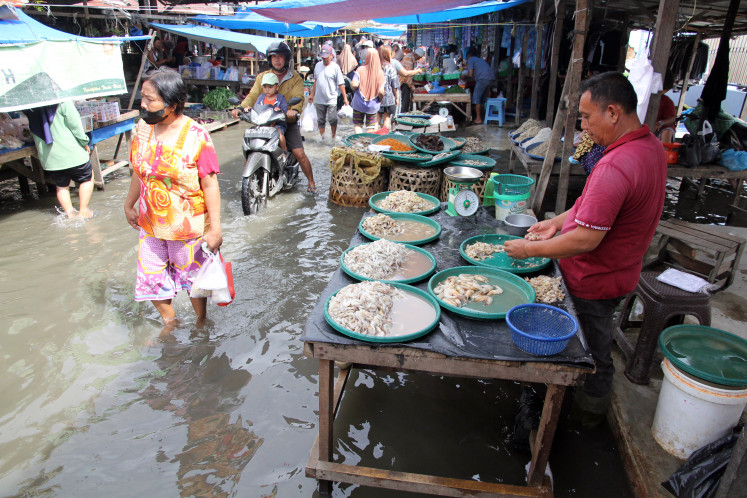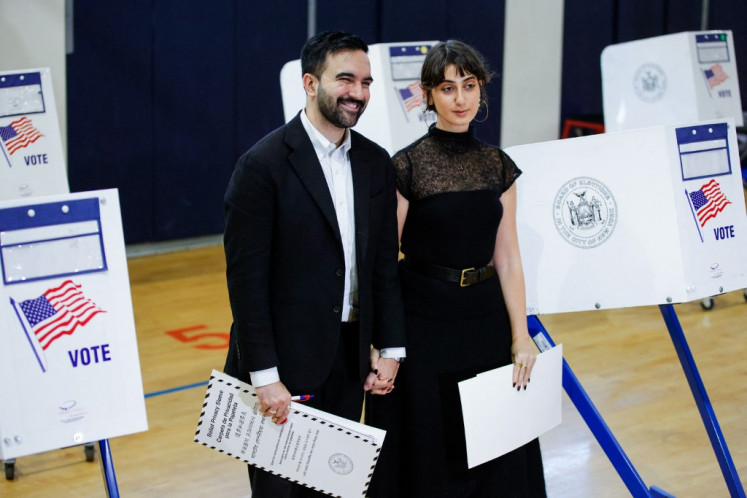Popular Reads
Top Results
Can't find what you're looking for?
View all search resultsPopular Reads
Top Results
Can't find what you're looking for?
View all search resultsDiscourse: RI's aviation growth to skyrocket
A healthy economy and the growth of the middle class increased demand for air travel
Change text size
Gift Premium Articles
to Anyone
A
healthy economy and the growth of the middle class increased demand for air travel. The Transportation Ministry said the number of air travelers in the country was in excess of 72 million throughout 2012, a rise of almost 15 percent from the previous year. The Jakarta Post's Nurfika Osman recently talked to the ministry's air transportation director general Herry Bakti S. Gumay about this fast-growing sector. Below are excerpts from the interview:
Question: How significant will the growth in the aviation sector be over the next few years?
Answer: In the past three years, aviation sector grew between 15 to 20 percent annually and we expect double digit growth in the coming years. Carriers, such as Garuda Indonesia and Lion Air, are expanding business, putting more aircraft into operation every year and opening up new routes within the country and abroad as well. There is also increased demand for chartered flights and helicopters as more people and companies explore business potential across the country.
In addition, we are addressing the infrastructure needed to support this sector including airports, navigation equipment and human resources that all help boost the economy. I have to admit that we were quite late in expanding our infrastructure because we did not foresee growth being this big a few years back.
For instance, state owned airport companies Angkasa Pura I and Angkasa Pura II have been expanding their airports for the past two years. Commercial airports across the archipelago such as Soekarno-Hatta International Airport [in Banten, west of Jakarta], Ngurah Rai International Airport [in Bali] and Sultan Hasanuddin International Airport [in South Sulawesi] will meet rising demand. It will build more new airports to anticipate future demand too, such as Kertajati Airport in West Java and a new airport in the northern part of Bali.
As a regulator, we also develop aviation infrastructure by building and expanding small and medium airports in second- and third-tier cities in the country. We plan to open 20 new small airports in the next three years, with half of them located in eastern parts of Indonesia like Papua and East Nusa Tenggara [NTT].
We are also channeling growth to several airport hubs including Medan, Makassar, Balikpapan, Surabaya and Denpasar so that will help ease congestions in Jakarta [Soekarno-Hatta]. More [flight] slots will be available enabling operators to connect one hub to another and passengers would not have to stop in Jakarta, making the trip more efficient.
What programs to help accelerate human resources development in aviation are also crucial for the sector's growth?
We keep developing human resources in this sector, from pilots to technicians, because without them, the industry will not grow. We need around 1,000 new pilots annually while we can only produce around 400 to 500 every year. Thus, development is a must here. There used to only be two aviation academies in the country, but now the figure has risen to 16 including the STPI Curug [Curug Aviation Academy] in Banten. Facilities at the academy in Surabaya were recently expanded so it now offers pilot training. In the first phase, we will be able to produce 20 students a year. After Surabaya, we want to expand the facilities of our transportation academy in Makassar. We are currently preparing the project and we hope to commence operations of these facilities in the next two or three years.
We are also offering civil servants the opportunity to become pilot instructors. But we will not lower standards since the selection process is the same with anyone who wants to enter pilot academy. We will not compromise the issues of standards or safety.
To help increase both the quantity and quality of our human resources, we are open to collaborations with other countries. For example we are looking at a possible joint venture with New Zealand at the moment.
How ready is Indonesia to compete with other countries and their carriers in ASEAN Open Sky Policy, which will be effective in 2015?
I can say that we are ready to face the Open Sky Policy as we keep developing our infrastructure and our domestic carriers continue to expand. We will open five airports when the policy is implemented: Jakarta, Surabaya, Medan, Denpasar and Makassar. Some people are afraid we will only become a market in ASEAN when the policy is effective, but I am optimistic that we will be able to tap into the opportunities. What is the benefit of protecting our market when everyone else is opening it? More connections will grow our economy and tourism sector. Besides, we are not going to allow foreign carriers to connect one domestic point to another. So, we do not have to worry about it.
What are our chances of becoming an International Civil Association Organization (ICAO) council member at the end of the year?
We are optimistic that we can become an ICAO council member because we take good care of our aviation industry and at the same time, we are active in international arena. We are consistently helping other countries to develop
their aviation sector such as offering pilot scholarships and providing capacity building for their human resources. Recently, we signed a Memorandum of Understanding [MoU] with the African Civil Aviation Conference [AFCAC] as our commitment to help improve human resource development in African countries. We are looking to collaborate with the European Civil Aviation Conference [ECAC] and Arab Civil Aviation Conference [ACAC] this year. We are also working closely with the ICAO to provide training programs through the Developing Countries Training Program throughout 2013.
In addition, as a regulator, we continue to improve standards, systems and safety by sharing knowledge with other regulators in the US, Australia and Europe.
We have a huge air space, healthy economic performance and boast strong domestic carriers; I think we are a strong candidate for ICAO's council. Moreover, we proposed the establishment of an Asia Pacific Civil Aviation Conference because Asia Pacific is a very important region in this sector yet it has not had a special organization in ICAO.
With the positive growth projection, have you seen an impact in the air service agreement?
Yes. Many countries are expecting to get more slots to Indonesia because they want to explore every opportunity in our country and vice versa. We are entering into dialogue with a lot of countries around the world to renew the air service agreement.



